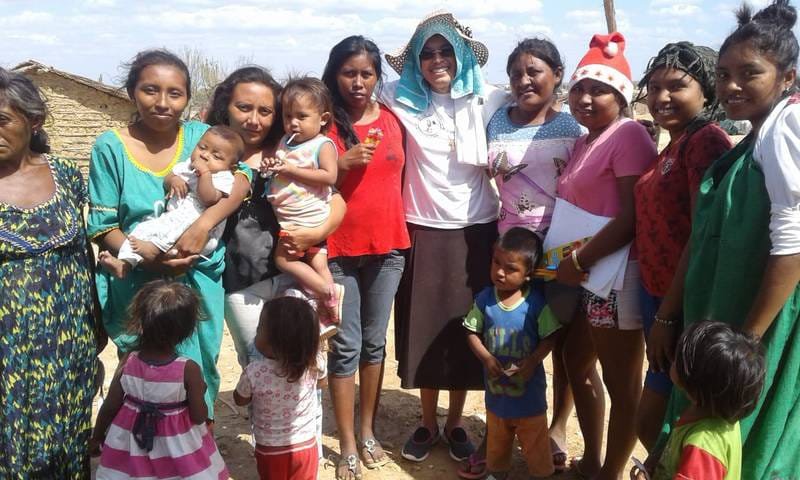With a hopeful outlook, we contemplate the hopes and struggles of migrants who, since ancient times, throughout the length and breadth of planet Earth, have moved in search of new ways to live with dignity, overcoming scarcity and the social or political pressure they have had to face, achieving the meeting of peoples where new civilizations have arisen.
A very general overview of the statistics on migration in the world should serve to raise personal and social awareness of this phenomenon, which is not new but which is now becoming a social problem, and governments are debating whether to implement laws or close borders. There are more than 281 million migrants, including children, adolescents, women and men. Of these, 169 million are workers, according to statistics. In addition, 206 thousand people are trafficked, 43 million are refugees seeking asylum, 60 thousand are resettled refugees, 61 million are displaced by disasters, 71 million are displaced by conflict and violence, and 64 thousand have disappeared in their search for a home.
“Have mercy, God”, and the most admirable thing is that, despite their struggles and efforts, the remittances they send to their countries of origin, expanding the profits of national banks, are the largest in recent times: 860 billion dollars last year. This last figure demonstrates the courage, sacrifice and resilience of these people, who assume the consequences for love of life and home (Luis Donaldo González Pacheco, Mexico).
The search for safety and a better life drives every person to move. However, migrants face significant challenges, such as differences in land, language, idiosyncrasies and laws. Despite these difficulties, they find opportunities for work, food, shelter and, most importantly, security for themselves and their families. This reality affects all of humanity and should not lead to labor exploitation, slavery or the violation of their rights. Instead, it is essential to recognize and value the contributions that migrants make to the nations that welcome them, regardless of their origin.
González expands, in the context of salvation history, by reminding us of the displacements of God’s chosen people. Abraham and Jacob left their lands and died far from them, following what God had asked of them, and thus forged a history in motion as part of the divine project. In the New Testament, Jesus and his parents also had to migrate to Egypt to protect their lives, facing circumstances similar to those of many people migrating today.
No human being moves for no reason; behind every person there is a story that begins the moment he or she decides to seek a better life. This is the principle that drives every man or woman to leave their homeland. The challenges mentioned above become obstacles, but the love of life gives them the power to face them. These challenges form their heart in humility, fortitude and perseverance, reminding us that only those who love are capable of enduring rejection, mistreatment, insults and abandonment in order to reach their goal.
Numerous experiences are shared in social networks and magazines that are dedicated to not forgetting the stories of empowerment that many migrants around the world have achieved. Their socio-cultural contributions to host communities include increasing food diversity, creating new music and sporting achievements. A Honduran migrant opened a restaurant, bringing the cuisine of his home country to the Mexican culinary scene. A Venezuelan migrant created an orchestra in the Dominican Republic to share his music with the youth of his community. In 2019, Emmanuel Iwe, an 18-year-old Nigerian soccer player, signed a contract with Deportivo Saprissa, a Costa Rican soccer club. These are just a few of the many stories that represent the diverse contributions of migrants (IOM, regional office for migrants).
Every search implies leaving, leaving, moving forward, taking on and facing the new that adventure brings. As the biblical text says: “He who seeks, finds”. But to get there, it is necessary to face and overcome challenges, with the hope and illusion of settling down and starting a new life. Migrants express their desire to return to their land of origin, facing new challenges with the security of a job, a house and daily bread, and always with an eye on those who stayed behind.
S. Edelma Toruño Reyes




